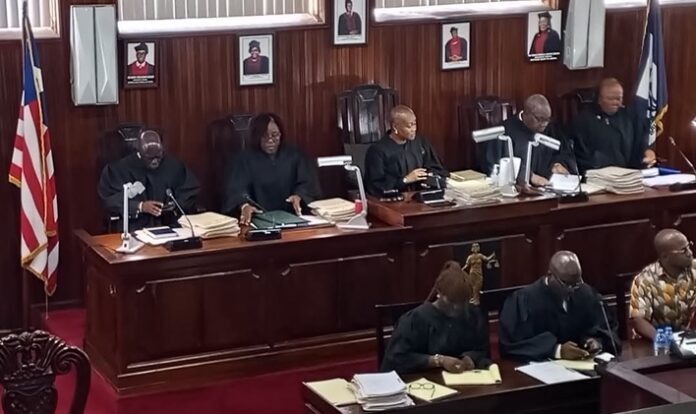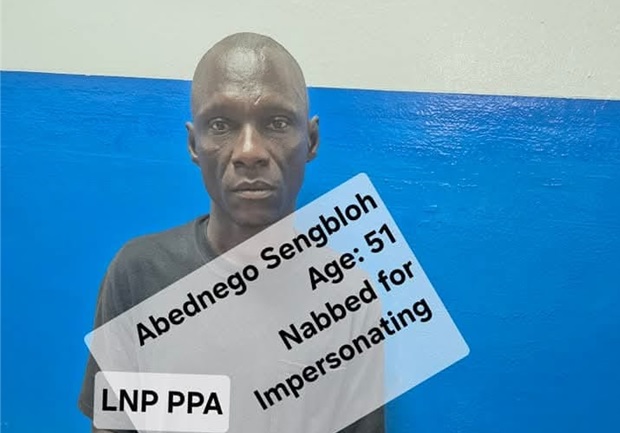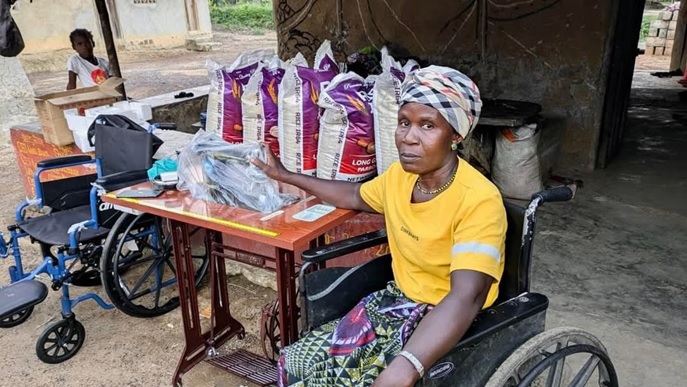MONROVIA, LIBERIA – A high-level delegation from the Economic Community of West African States (ECOWAS), led by Prof. Ibrahim Gambari, has called on all stakeholders in Liberia to uphold the impending ruling of the Supreme Court, warning that failure to do so could further destabilize the country’s fragile democracy. The mission, which visited Liberia from March 23 to 27, 2025, was tasked with addressing the political impasse gripping the House of Representatives and assessing the broader state of governance in the country.
The ECOWAS delegation, which included representatives from the United Nations, met with key political figures, including President Joseph Nyuma Boakai, former Presidents Ellen Johnson Sirleaf and George Weah, as well as senior government officials and international partners. Their discussions centered on resolving the deadlock in the House leadership and preventing further constitutional violations that threaten Liberia’s democratic stability.
At the heart of the crisis is an intense battle for control of the House of Representatives, with Speaker J. Fonati Koffa presiding over the Minority Bloc and Representative Richard Koon leading the Majority Bloc. The conflict escalated when the Majority Bloc attempted to unseat Speaker Koffa through legislative maneuvers that the Supreme Court has now strongly rebuked.
In a statement issued on March 26, the Supreme Court criticized the Majority Bloc for disregarding constitutional procedures in their efforts to remove Speaker Koffa. Chief Justice Sie-A-Nyene Gyapay Yuoh and her colleagues emphasized that any attempt to oust the Speaker must comply with Articles 33 and 49 of the 1986 Constitution, which require a legitimate House session and a minimum of 49 votes. The Court condemned the chaos that has erupted on Capitol Hill, including an arson attack on the HOR and confrontations between rival factions, warning that continued defiance of constitutional order could plunge Liberia into further instability.
Justice Yussif D. Kaba issued a stark warning, stating that the Majority Bloc’s decision to hold a parallel legislative session was unconstitutional and posed a direct threat to the country’s governance structure. During deliberations on a Bill of Information filed by Speaker Koffa’s legal team, the Court challenged the Majority Bloc’s lawyers to specify which Supreme Court ruling had been violated—an argument they struggled to substantiate. The Justices made it clear that while the Court interprets the law, enforcement ultimately falls under the authority of the Executive Branch.
Despite the Court’s intervention, the political deadlock persists, with both factions refusing to compromise. Speaker Koffa continues to assert his authority, while the Majority Bloc insists on his removal. Legal experts and political analysts warn that if the impasse is not swiftly resolved, it could cripple the legislative process and erode public confidence in Liberia’s democratic institutions.
ECOWAS, in its closing remarks, stressed the urgent need for unity and collaboration among Liberia’s political leaders, particularly between President Boakai and his predecessors. The regional body called for the immediate development of a roadmap to break the legislative deadlock and reaffirmed its commitment to supporting peace, good governance, and sustainable development in Liberia.







